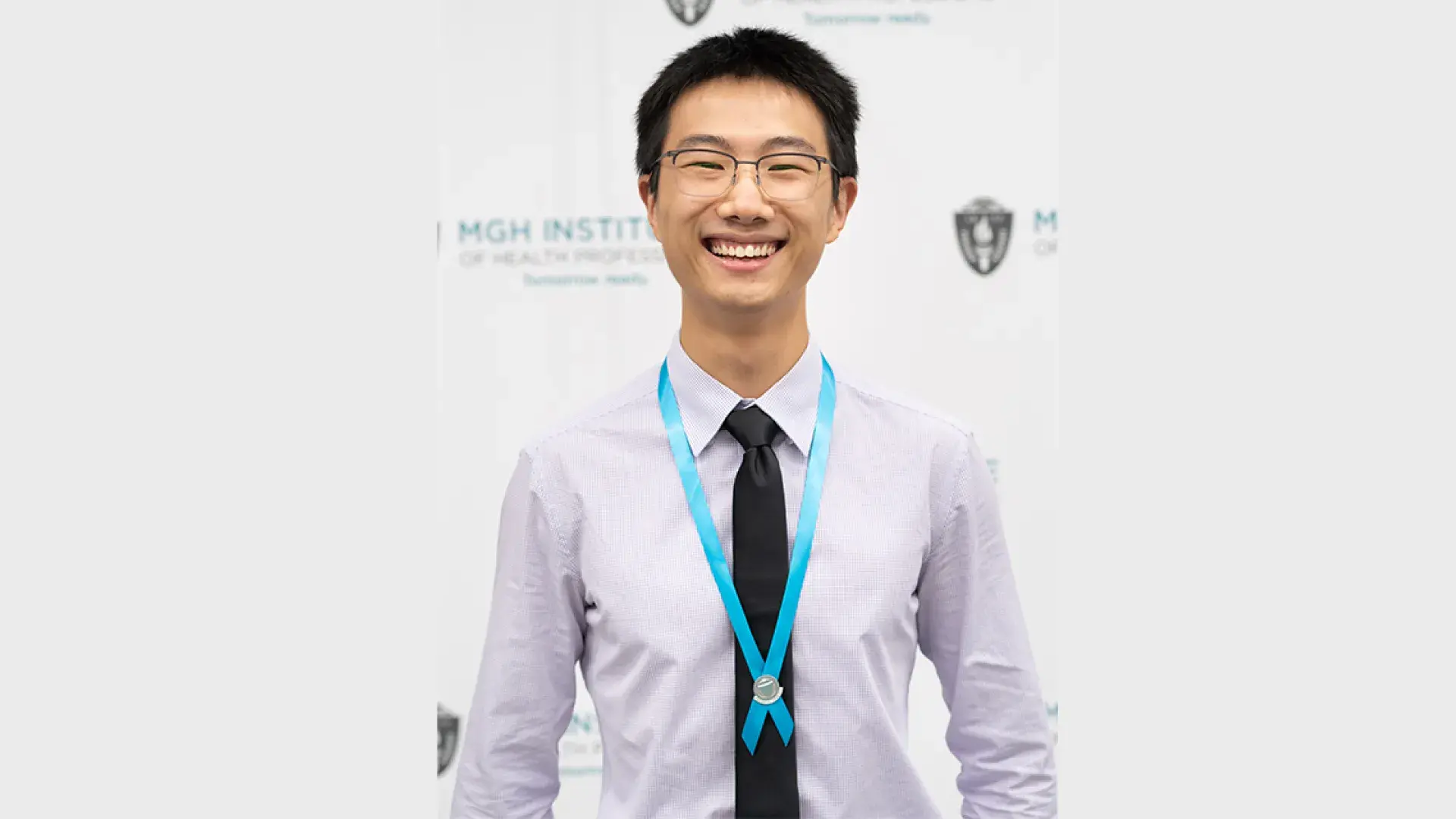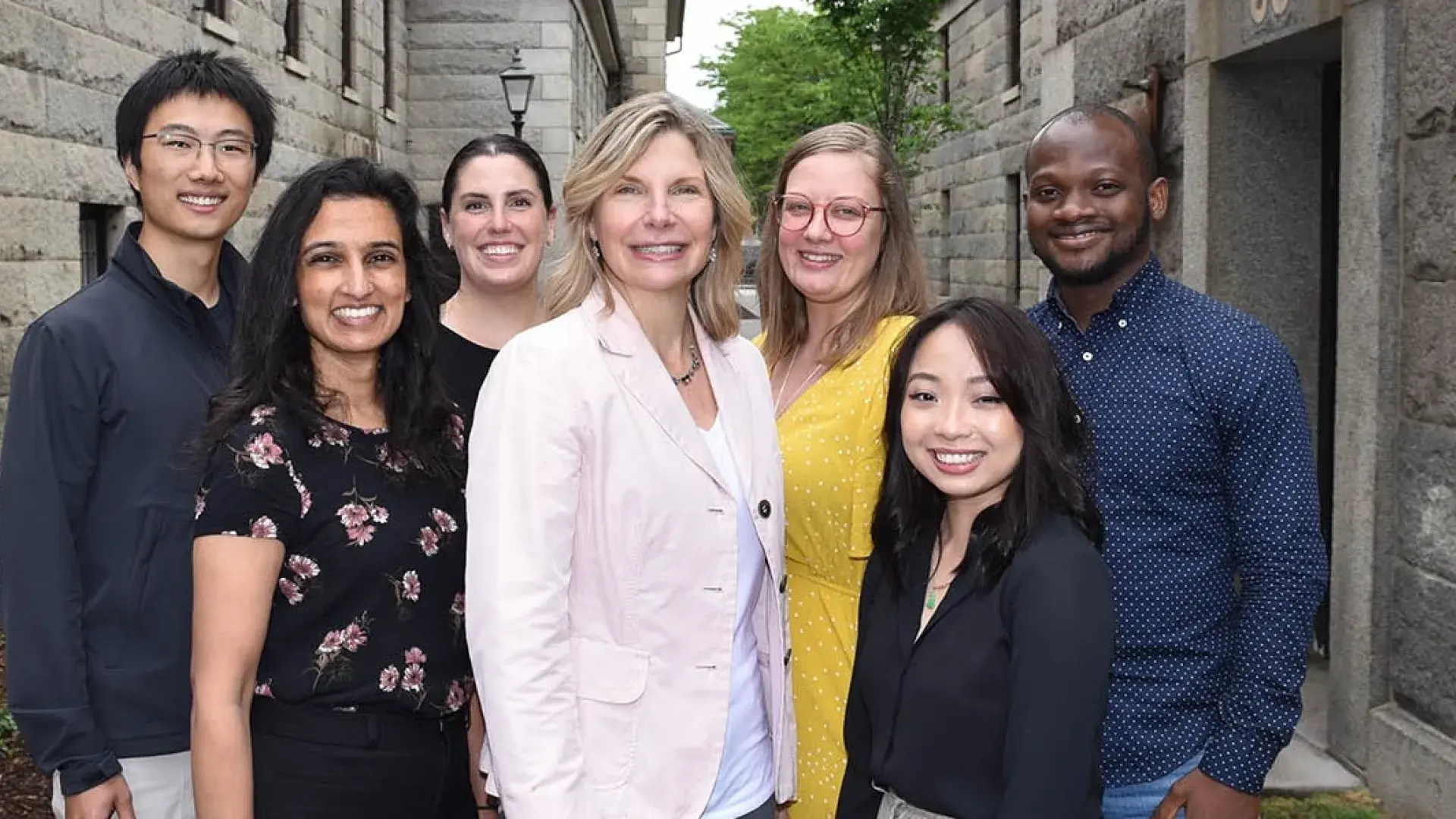
DPT student Yuchao Wang saw a gap between clinical practice and physical therapy research when his mother was beset with a neck injury. Now, he plans to use his degree to connect the two sides and improve how research can influence patient care.
For Yuchao Wang, DPT ’24, his mother’s battle with cervical spondylosis inspired him to pursue becoming a physical therapist. In their home of Nanjing, China, he watched as she went from specialist to specialist receiving treatments that included massage therapy, acupuncture, and traditional Chinese medicine.
“Early on, I was exposed to manual therapy and clinical practice in general,” Wang shared. “The effect they could bring to individual patients impressed me, yet it was not until later that I became aware of the field of physical therapy in the US.”
It’s reported that 9 out of 10 adults will have some degree of cervical spondylosis – defined as wear and tear affecting the neck’s spinal disks – by the time they are 60 years old. It’s a fairly common condition that could progress to require surgical intervention, even though early management with physical therapy can significantly help with pain and other symptoms.
“Watching my mother improve with this wide variety of treatments showed me at a young age how fascinating the human body is, and how gratifying therapy can be,” Wang said.
Looking back, Wang said this was one of the steppingstones that led him to pursue becoming a physical therapist, but at the time it wasn’t so clear. After his early and secondary education in China and Singapore, he was eager to break free of the STEM-heavy curriculum. He yearned to explore his passions and try new things. To do so, he attended Haverford College, a small liberal arts college outside Philadelphia, where he discovered his interest in cognitive science.
But his undergraduate education raised a few questions for him, the first one being “What is the connection between mind and body in rehabilitation?”
Having studied the brain and its inner workings while earning his undergraduate degree, Wang knew there must be more to it. He wanted to dig deeper, but he was aware that research and clinical practice don’t always line up.
“There is often a gap between the real-life complexity experienced by a patient and what researchers can address in a carefully controlled experiment,” Wang noted. “There is a difference between seeing patients firsthand and researching their recovery from a distant perspective. Both research and clinical practice are invaluable, but they aren’t always brought together.”
That led to another question he wanted to answer: “How can research and clinical practice work together to bolster the impact of rehabilitation?”
Wang didn’t know the answer to this question, either … yet. But he did know that to bridge the gap, he needed clinical experience to drive his own research and satiate his curiosity.
To that end, the IHP’s Doctor of Physical Therapy program was a great fit. When looking at the IHP’s website, he was struck by how clinically focused the faculty are and how ingrained research was in the curriculum. It was two halves of the whole that he was looking for.
“I love physical therapy because, at its core, it’s about allowing people to find their own strength,” he said. “It allows you build a connection with a patient that you’ll continue to see for weeks or months as they progress, and that’s something you don’t get from research – really being able to see the impact you have on someone.”
It’s been a year since Wang came to the IHP, and his time has been well spent. But he notes that it’s the school’s support of international students that has allowed him to focus on his studies, rather than his status. He’s one of 71 international students from 14 countries currently enrolled at the school.
“It has truly been a breeze being an international student at the IHP,” he shared. “I’ve never seen so many different departments work together and know what to do in helping me succeed – even just with the paperwork required for me to do my clinicals – than they do here. They make it easy.”
Jessica Upton, Lead International Student Advisor and Programming and Advising Manager in the Office of Student Affairs and Services, shared more on the IHP’s approach to supporting international students.
“Through semesterly check-ins, incoming international student orientation, visa support, and advising, we do everything we can to make attending the IHP as seamless an experience as possible for our international students,” Upton said.
This support has allowed Wang to focus on his studies while finding time to become a graduate assistant in the Brain Recovery Lab, run by Dr. Teresa Jacobson Kimberley.

